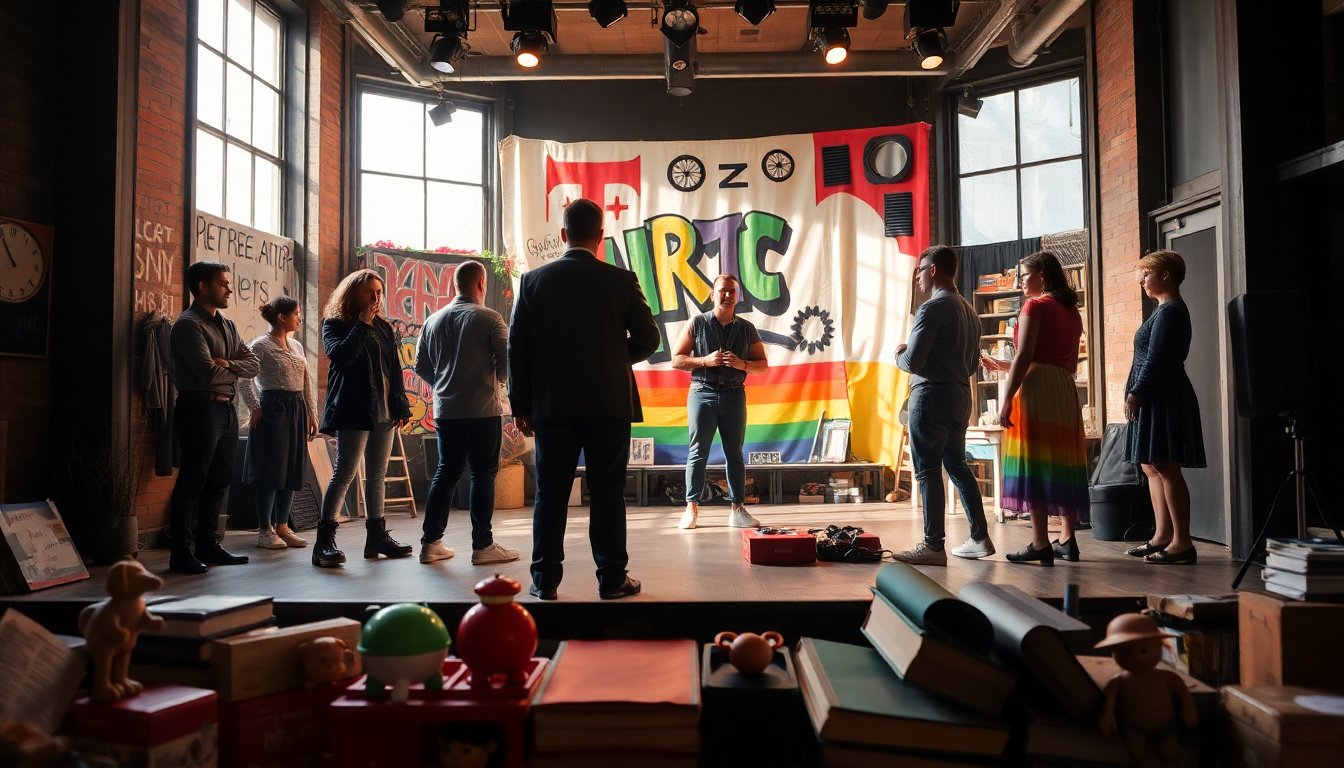Table of Contents
The landscape of theater is undergoing a remarkable transformation, particularly in the realm of off-Broadway productions. As societal attitudes toward gender and sexuality evolve, these creative platforms are daring to challenge longstanding taboos surrounding queer childhood. This shift not only reflects changing cultural dynamics but also opens new avenues for dialogue and acceptance.
With an increasing number of productions addressing themes of queer identity, questions arise about the implications of a future monarch identifying as part of the LGBTQ+ community. Such narratives prompt a reevaluation of traditional roles and expectations, fostering a more inclusive understanding of childhood and identity.
Breaking boundaries with storytelling
Recent off-Broadway shows are at the forefront of this cultural shift, utilizing vibrant storytelling to delve into the lives of queer youth. By presenting compelling characters and relatable scenarios, these productions challenge audiences to reconsider their preconceived notions about sexual orientation and the experiences of young people navigating their identities.
Innovative narratives
These narratives often juxtapose the innocence of childhood with the complexities of growing up in a society that may not always be accepting. One recent production features a young protagonist grappling with their identity amidst familial and societal pressures. This storyline resonates with many young audience members and serves as a critical reflection of the challenges faced by queer youth in real life.
Moreover, the incorporation of humor and warmth in these stories helps to soften harsh realities, making them accessible while still delivering poignant messages. The blend of comedy and serious themes creates a dynamic viewing experience that invites empathy and understanding.
Reimagining royal narratives
The notion of a gay future king challenges traditional narratives within monarchy. This concept serves as an intriguing backdrop for exploring broader themes of acceptance and diversity in leadership roles. The portrayal of a queer monarch not only normalizes diverse identities but also encourages discussions about representation in positions of power.
Symbolism and representation
Imagining a future where a gay king reigns opens conversations about how society views leadership and authority. It symbolizes a shift toward a more inclusive understanding of what it means to lead. Theater, as a medium, has the unique power to reflect and shape societal values, and these productions are at the forefront of this movement.
Through the lens of a young royal struggling with their identity, audiences can explore the intersection of personal growth and public duty. Such characters embody the complexities of modern life, challenging stereotypes and advocating for a more nuanced portrayal of gender and sexuality in society.
The impact of representation
The increasing visibility of queer narratives in theater not only entertains but also educates. Productions that focus on queer childhood provide essential representation for young audiences who may see themselves reflected on stage for the first time. This representation can be profoundly validating, empowering individuals to embrace their identities.
Furthermore, these stories foster a sense of community and support, encouraging dialogues among peers, families, and educators. By normalizing discussions around sexual orientation and gender identity, off-Broadway shows contribute to a cultural landscape where acceptance and understanding can flourish.
With an increasing number of productions addressing themes of queer identity, questions arise about the implications of a future monarch identifying as part of the LGBTQ+ community. Such narratives prompt a reevaluation of traditional roles and expectations, fostering a more inclusive understanding of childhood and identity.0


